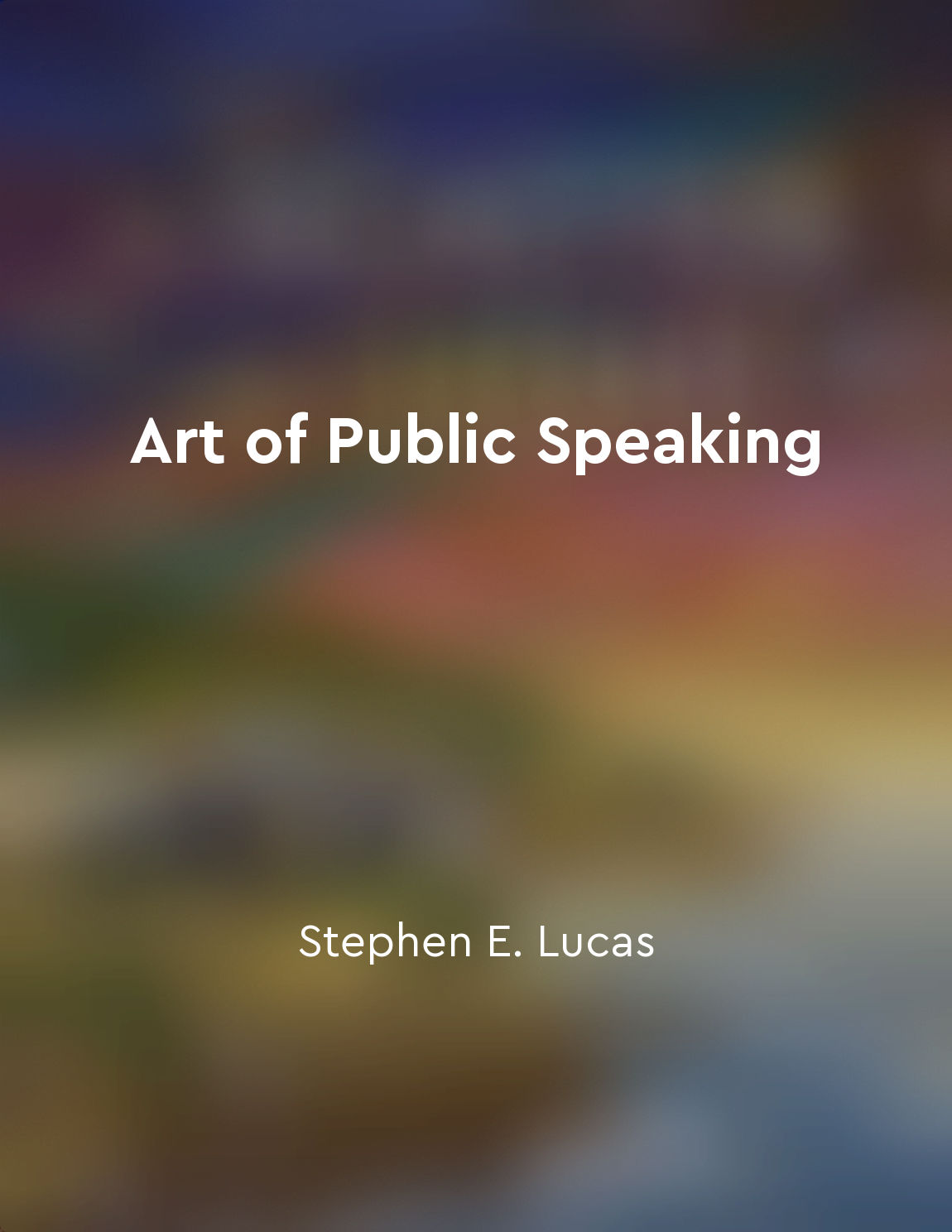Use language that is clear and concise from "summary" of Art of Public Speaking by Stephen E. Lucas
Language that is clear and concise is essential for effective communication. By using simple and straightforward language, speakers can ensure that their message is easily understood by the audience. Complex or convoluted language can confuse listeners and detract from the overall impact of a speech. Additionally, clear language helps to maintain the audience's attention and engagement throughout the presentation. When crafting a speech, speakers should strive for clarity and coherence in their language. This means that ideas should be presented in a logical and organized manner, with each point flowing naturally from the one before it. By following a logical sequence, speakers can guide the audience through their argument or narrative in a way that is easy to follow and understand. Transition words and phrases are also crucial for maintaining coherence in a speech. These words help to connect ideas and signal shifts in topic or direction. By using transition words such as "therefore," "however," and "in conclusion," speakers can guide the audience through the different sections of their speech and help them to follow along more easily. Consistency in tone and style is another important aspect of clear and concise language. Speakers should strive to maintain a consistent tone throughout their speech, whether it be formal, informal, or somewhere in between. This helps to establish a rapport with the audience and reinforces the speaker's credibility. Grammar and syntax are also key components of clear language. Speakers should pay attention to their sentence structure, punctuation, and word choice to ensure that their message is communicated accurately and effectively. By following the rules of grammar and syntax, speakers can avoid confusion and misinterpretation. Contextual understanding is crucial for crafting language that is clear and concise. Speakers should consider their audience, purpose, and message when choosing their words and phrases. By tailoring their language to fit the specific context of their speech, speakers can ensure that their message resonates with the audience and achieves its intended impact.- Using language that is clear and concise is essential for effective communication. By focusing on simplicity, clarity, and coherence, speakers can ensure that their message is easily understood and engaging for the audience. By following a logical sequence, using transition words, maintaining consistency in tone and style, paying attention to grammar and syntax, considering the context, and engaging the reader, speakers can craft language that is impactful and memorable.


